and are two volatile liquids with molar weights of and respectively. Two cotton plugs, one soaked in and the other soaked in , are simultaneously placed at the ends of a tube of length cm, as shown in the figure.
The tube is filled with an inert gas at 1 atm pressure and a temperature of . Vapours of and react to form a product whichh is first observed at a distance cm from the plug soaked in .
Take and to have equal molecular diameters and assume ideal behaviour for the inert gas and two vapours.
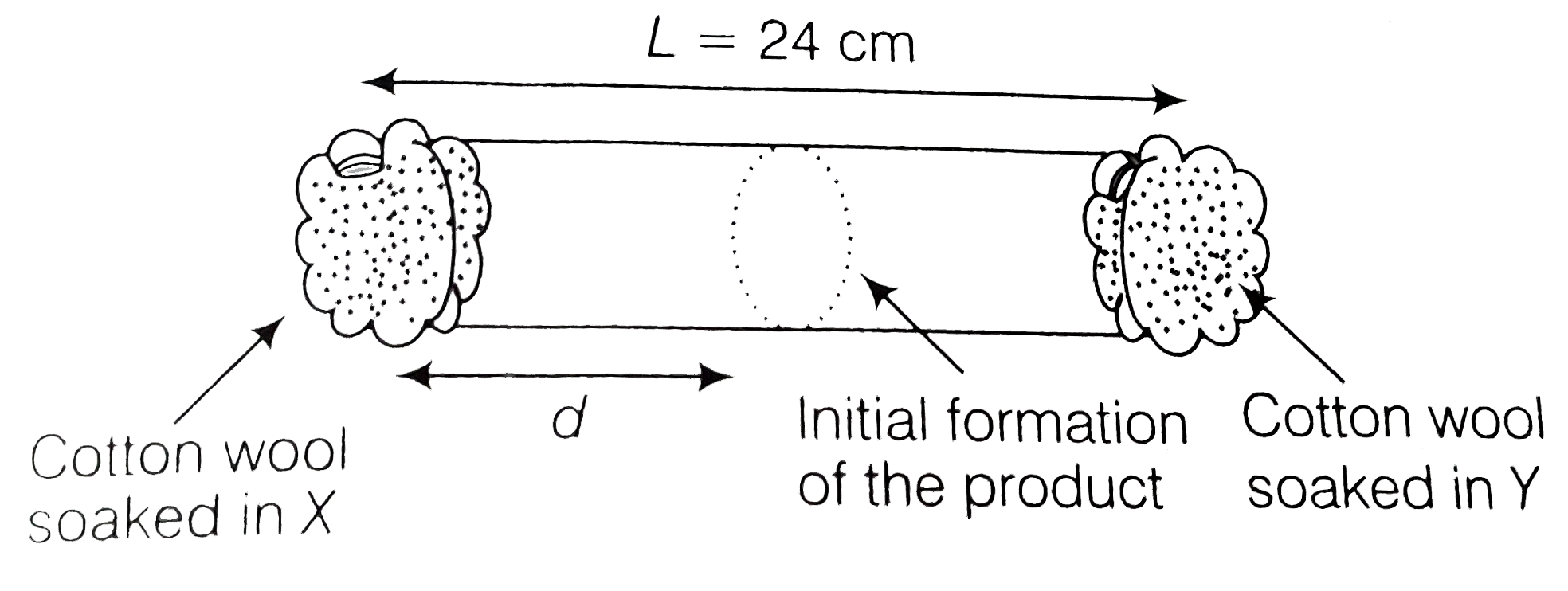
The experimental value of is found to be smaller than the estimate obtained using Graham's law. This is due to
larger mean free path for X as compared to that of Y
larger mean free path for Y as compared to that of X.
increased collision frequency of Y with the inert gas as compared to that of X with the inert gas.
increased collision frequency of X with the inert gas as compared to that of Y with the inert gas.
The correct Answer is:D
Step by step video, text & image solution for X and Y are two volatile liquids with molar weights of 10gmol^(-1) and 40gmol^(-1) respectively. Two cotton plugs, one soaked in X and the other soaked in Y, are simultaneously placed at the ends of a tube of length L=24 cm, as shown in the figure. The tube is filled with an inert gas at 1 atm pressure and a temperature of 300K. Vapours of X and Y react to form a product whichh is first observed at a distance dcm from the plug soaked in X. Take X and Y to have equal molecular diameters and assume ideal behaviour for the inert gas and two vapours. The experimental value of d is found to be smaller than the estimate obtained using Graham's law. This is due to by Chemistry experts to help you in doubts & scoring excellent marks in Class 12 exams.
Updated on:21/07/2023Topper's Solved these Questions
Similar Questions
A tube of length 50 cm is containing a gas in two secitons separated by a mercury column of length 10cm as shown in figure. The tube's open end is just inside the Hg surface in container, find pressure of gas in upper section. [Assume atmospheric pressure = 75 cm of Hg column]
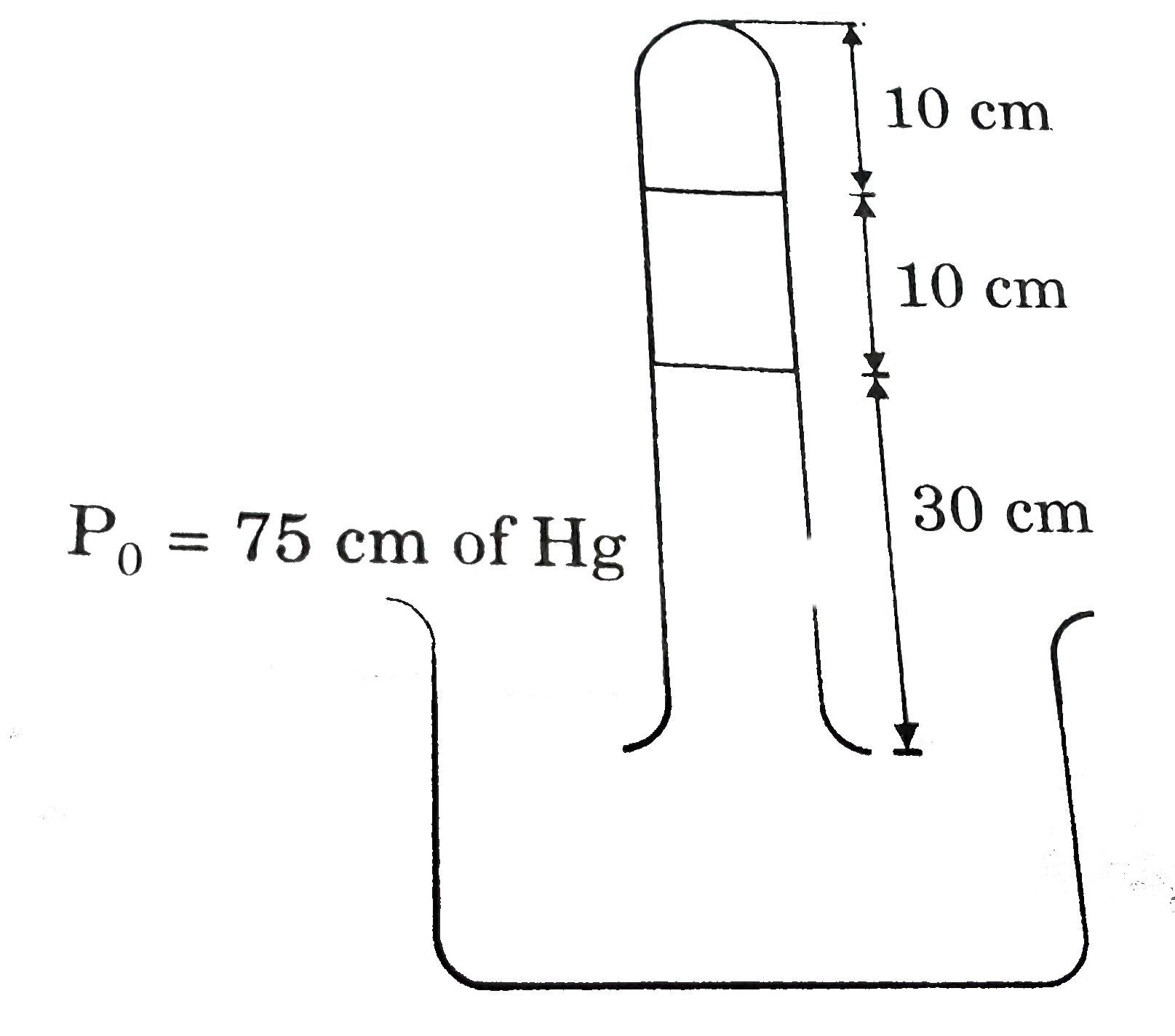
View SolutionTwo liquids X and Y boil at 110∘C and 130∘C, respectively. Which one of them has higher vapour pressure at 50∘C?
View Solution
Knowledge Check
X and Y are two volatile liquids with molar weights of 10gmol−1 and 40gmol−1 respectively. Two cotton plugs, one soaked in X and the other soaked in Y, are simultaneously placed at the ends of a tube of length L=24 cm, as shown in the figure.
The tube is filled with an inert gas at 1 atm pressure and a temperature of 300K. Vapours of X and Y react to form a product whichh is first observed at a distance dcm from the plug soaked in X.
Take X and Y to have equal molecular diameters and assume ideal behaviour for the inert gas and two vapours.
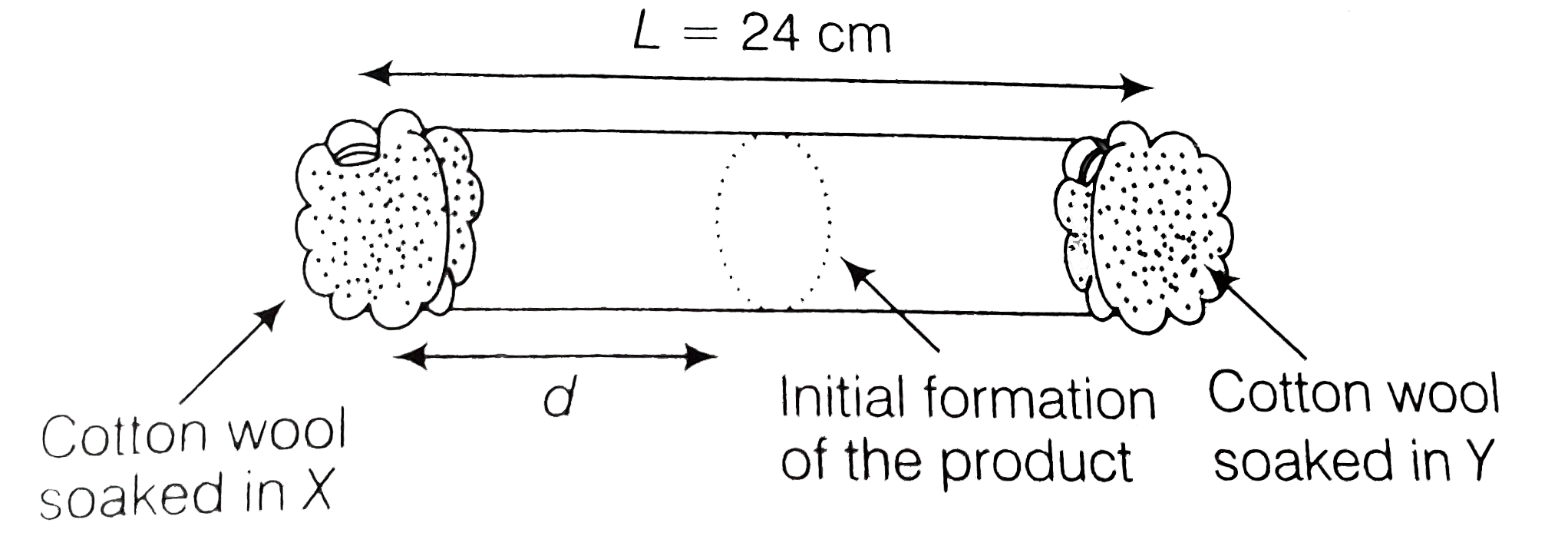
The value of d in cm (shown in figure), as estimated from Graham's law, isA8B12C16D20Two pieces of cotton wool soaked separetely in aqueous solution of NH3 and HCl are placed at opposite ends of a close glass tube as shown in diagram
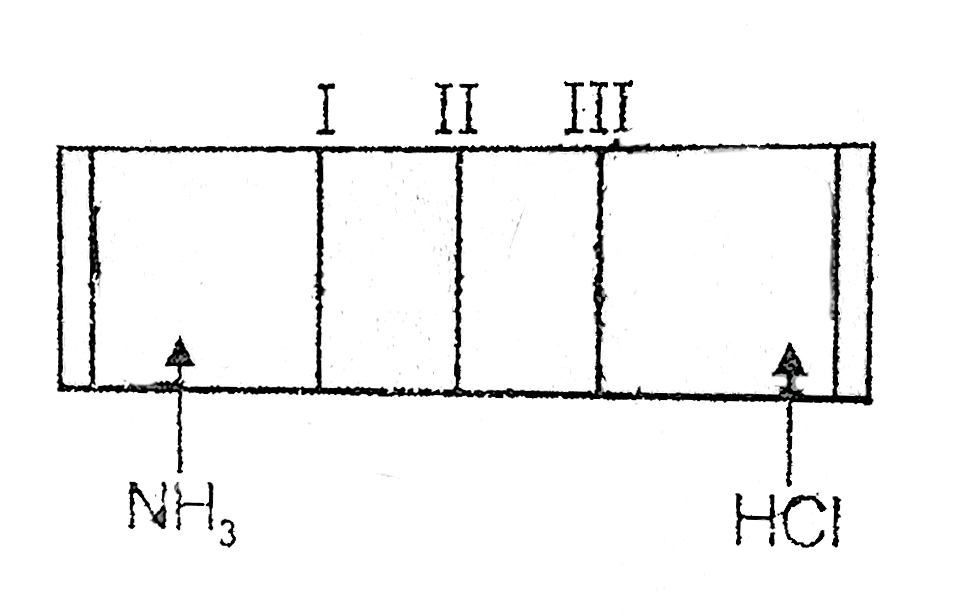
Select nearest position where white solid is formedAIBIICIIIDWhite solid does not formed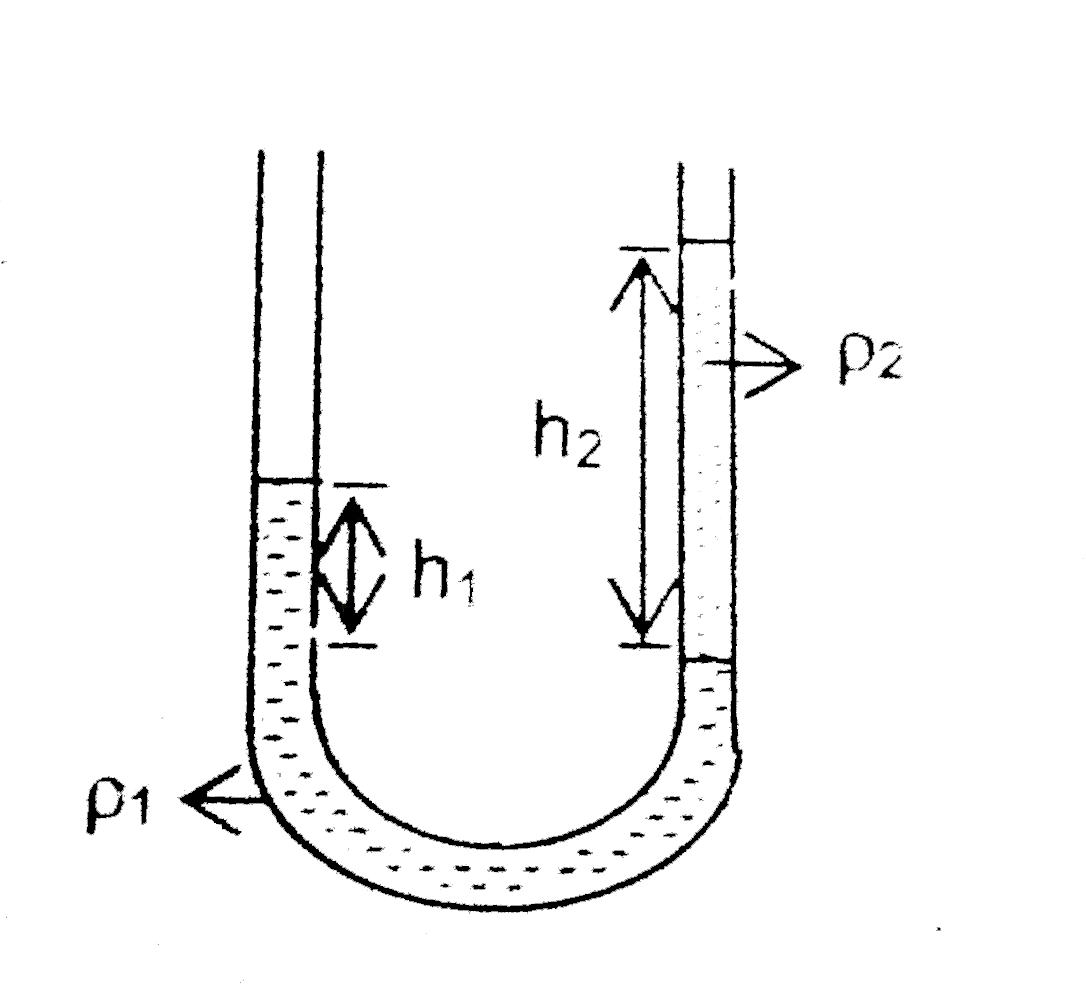
Two liquids which do not react chemically are placed in a bent tube as shown in figure. The height of the liquids above their surface of separation areAdirectly proportional to their densitiesBinversely proportional to their densitiesCdirectly proportional to square of their densitiesDinversely proportional to square of theire densities.
The pressure of a mixture of equal weight of two gases of mol wt. 4 and 40, is 1.1 atm. The partial pressure of the lighter gas in this mixture is
View SolutionIn two containers X and Y same gas is filled. If the pressure, volume and absolute temperature of gas in X are three times as compared to that in Y and if the mass of X is mg, the mass of Y is
View SolutionA liquid of density ρ is filled in a U-tube is accelerated with an acceleration a so that the height of liquid in its two vertical arms are h1andh2 as shown in the figure. If l is the length of horizontal arm of the tube, the acceleration a is
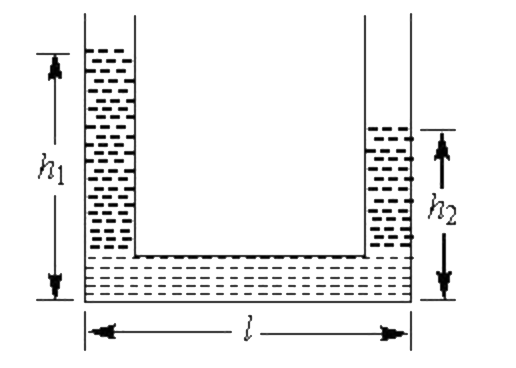
View SolutionIn the given figure, atmospheric pressure p0=1 atm and mercury column length is 9 cm. Pressure p of the gas enclosed in the tube is
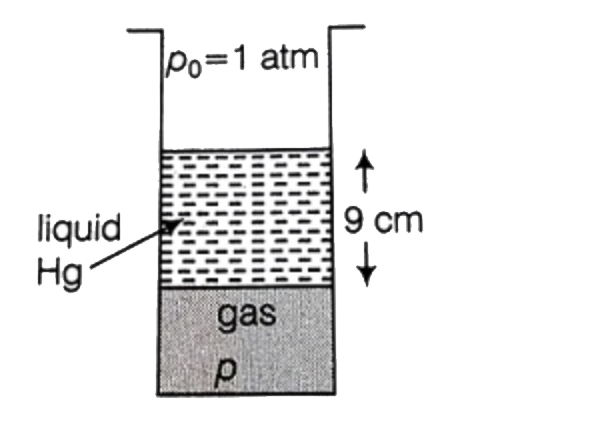
View SolutionThe surface tension of two liquids are 30 and 60 dyne cm−1 respectively. The liquid drop form at the ends of two tube of the same radius. The ratio of the weight of the two drops is
View Solution
